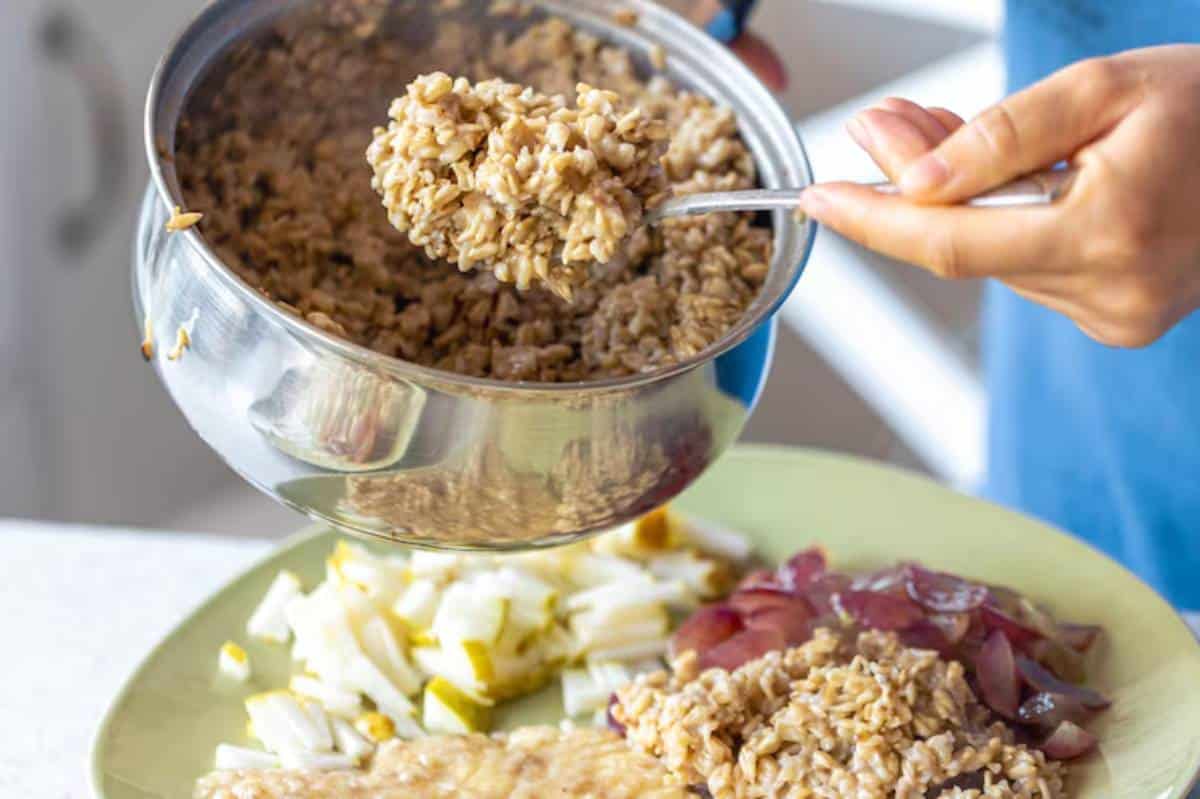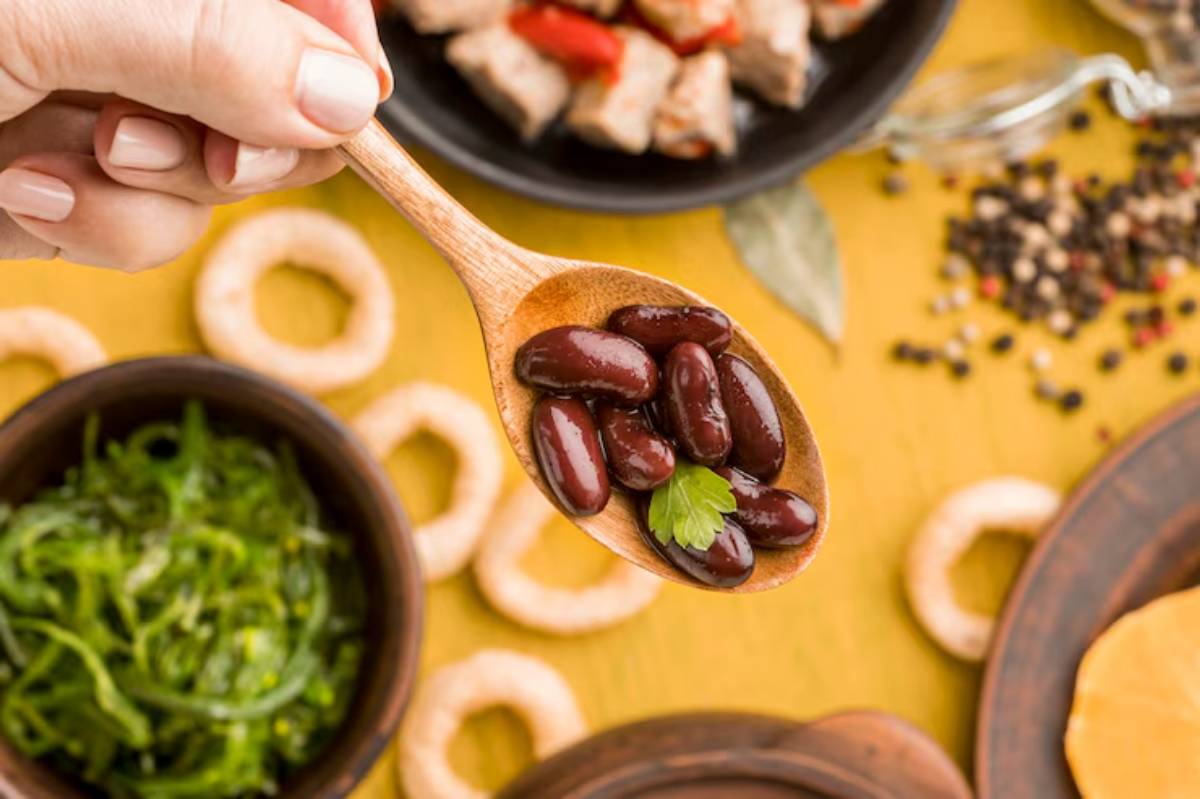
Low-Sodium Mediterranean Meals for Heart Health
Think a heart-friendly diet means bland food? Think again. Imagine a vibrant plate filled with roasted vegetables. Add grilled fish topped with golden olive oil, a squeeze of lemon, and aromatic herbs like thyme and oregano. No saltshaker needed.
Heart health isn’t just about cutting things out – it’s about adding the right things in. And that’s where the Mediterranean diet excels. It’s low in sodium and packed with nutrients that help heart health. This makes it a great choice for anyone wanting to lower blood pressure, boost heart function, or live a longer, healthier life.
In this guide, we’ll look at why the Mediterranean diet is low in salt. We’ll see how it helps heart health. Plus, we’ll share tasty recipes and tips that show you can enjoy great food without a lot of sodium. You’ll discover just how vibrant a heart-smart table can be.
Why a Low-Sodium Diet Matters for Heart Health
Understanding Sodium’s Role in the Body
Your body needs sodium to function – it helps control fluid balance and supports muscle and nerve function. But in excess, sodium can be dangerous.
How Too Much Sodium Affects the Heart
High sodium intake can:
- Increase blood pressure
- Strain the heart and arteries
- Raise the risk of stroke and heart failure
- Causes fluid retention
NHS guidelines recommend no more than 6g of salt (2.4g of sodium) per day. Unfortunately, many processed and takeaway foods easily exceed that.
Why the Mediterranean Diet is Naturally Low in Sodium

A Whole-Food Foundation
The traditional Mediterranean diet is based on fresh, whole ingredients – not packaged meals. This alone cuts out a huge amount of hidden salt.
Natural Seasonings Replace Salt
Instead of relying on sodium for flavour, Mediterranean meals use:
- Fresh herbs like parsley, basil, and dill
- Aromatic spices like cumin, paprika, and cinnamon
- Tangy additions: lemon juice, vinegar, yoghurt
- Healthy fats: extra virgin olive oil
- Garlic and onion for natural savouriness
Lifestyle Habits Reinforce Health
It’s not just about food. Eating slowly, cooking from scratch, and sharing meals are all part of the culture and support mindful, heart-healthy habits.
Building a Low-Sodium Mediterranean Plate
Meal Composition
- Start with veg: Leafy greens, courgettes, aubergines, peppers.
- Add whole grains: Brown rice, bulgur, farro, barley.
- Include lean protein: Fish, legumes, eggs, or a bit of poultry.
- Drizzle with healthy fat: Olive oil, not butter or processed sauces.
- Add a punch of flavour: Lemon, herbs, garlic, or vinegar.
Sample Low-Sodium Meal Ideas
1. Grilled Mediterranean Mackerel with Herbed Quinoa Salad
- Mackerel is rich in omega-3s and doesn’t need much seasoning
- Quinoa tossed with olive oil, chopped mint, cucumber, and lemon
2. Chickpea and Spinach Stew
- Simmered with tomatoes, cumin, paprika, and fresh coriander
- Naturally salty chickpeas bring enough flavour
3. Farro and Roasted Veg Bowl
- Mix roasted courgettes, aubergine, red onion with barley or farro
- Add tahini-lemon drizzle and pomegranate seeds

Herbs and Spices: The Secret to Low-Sodium Flavour
Top Flavour Boosters
- Garlic: Sautéed, roasted, or raw in dressings
- Cumin: Earthy, perfect in stews and grain bowls
- Paprika: Sweet or smoked for depth
- Cinnamon: Adds warmth to tomato-based dishes
- Oregano & Thyme: Staples in roasted meats and veg
- Dill: Bright and fresh, especially in yoghurt dips
Create Spice Blends
Make your own no-salt Mediterranean rub:
- 2 tsp paprika
- 1 tsp cumin
- 1 tsp dried oregano
- 1/2 tsp garlic powder
- 1/2 tsp ground black pepper
Use on roasted vegetables, fish, or pulses.
Low-Sodium Cooking Techniques from the Mediterranean
Roast for Richness
Roasting concentrates natural sugars and umami flavours. Try:
- Courgettes, aubergine, tomatoes, peppers
Use Acid to Brighten
Lemon juice or vinegar can replace salt in bringing out flavour.
Incorporate Healthy Fats
Olive oil adds richness and mouthfeel, reducing the need for salt.
Embrace Fermentation
Yoghurt and kefir offer tang without salt. Add to soups, dips, or sauces.
Marinate, Don’t Salt
Use citrus, herbs, and garlic to marinate proteins and veggies instead of seasoning after cooking.
Low-Sodium Mediterranean Pantry Essentials
Stock these heart-smart, low-sodium basics:
- No-salt-added tinned tomatoes
- Dried beans and lentils
- Whole grains: bulgur, barley, farro
- Extra virgin olive oil
- Apple cider vinegar or balsamic
- Lemon and lime
- Garlic, onions, fresh and dried herbs
Benefits Beyond the Heart
Reducing sodium in a Mediterranean diet supports more than heart health. It also:
- Improves kidney function
- Reduces bloating and water retention
- Supports healthier bones (excess salt leaches calcium)
- Enhances taste sensitivity over time
Many people report feeling less sluggish and more energised after switching.
Real People, Real Results
Emily’s Story
“After my GP warned me about borderline high blood pressure, I was advised to try a Mediterranean-style diet but keep sodium low. I started cooking more and discovered spices I had never used before. Within months, my blood pressure dropped, and I felt so much better.”
Ahmed’s Experience
“I grew up in a culture that used a lot of salt in cooking. Transitioning was hard at first, but now I love experimenting with garlic, lemon, and herbs. My heart rate is more stable, and I’m sleeping better.”
Combining Low-Sodium and Mediterranean for Lifelong Health
Simple daily swaps:
- Replace salty dressings with lemon and olive oil
- Snack on unsalted nuts and fresh fruit
- Cook from scratch more often
- Use no-salt seasoning blends
Mindful habits to embrace:
- Read labels to avoid hidden sodium
- Choose fresh over processed wherever possible
- Taste before adding salt – you might not need it!
Conclusion: A Tasteful Path to a Healthier Heart
Cutting back on salt doesn’t mean cutting out flavour. The Mediterranean diet proves that heart-smart meals can be vibrant, delicious, and deeply satisfying.
By focusing on whole foods, using herbs and spices creatively, and embracing healthy fats and mindful eating, you can create low-sodium meals that support your cardiovascular health and excite your taste buds.
Try it yourself: Start with one low-sodium Mediterranean recipe this week. Share your experience in the comments or subscribe for more flavourful, heart-smart ideas delivered to your inbox.


